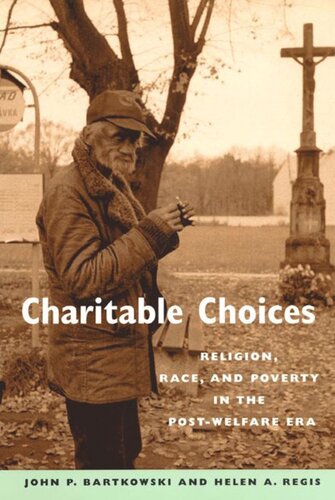

Most ebook files are in PDF format, so you can easily read them using various software such as Foxit Reader or directly on the Google Chrome browser.
Some ebook files are released by publishers in other formats such as .awz, .mobi, .epub, .fb2, etc. You may need to install specific software to read these formats on mobile/PC, such as Calibre.
Please read the tutorial at this link: https://ebookbell.com/faq
We offer FREE conversion to the popular formats you request; however, this may take some time. Therefore, right after payment, please email us, and we will try to provide the service as quickly as possible.
For some exceptional file formats or broken links (if any), please refrain from opening any disputes. Instead, email us first, and we will try to assist within a maximum of 6 hours.
EbookBell Team

4.3
78 reviewsAn ethnographic study of faith-based poverty relief programs in 30 congregations in the rural south.
Congregations and faith-based organizations have become key participants in America’s welfare revolution. Recent legislation has expanded the social welfare role of religious communities, thus revealing a pervasive lack of faith in purely economic responses to poverty.
Charitable Choices is an ethnographic study of faith-based poverty relief in 30 congregations in the rural south. Drawing on in-depth interviews and fieldwork in Mississippi faith communities, it examines how religious conviction and racial dynamics shape congregational benevolence. Mississippi has long had the nation's highest poverty rate and was the first state to implement a faith-based welfare reform initiative. The book provides a grounded and even-handed treatment of congregational poverty relief rather than abstract theory on faith-based initiatives.
The volume examines how congregations are coping with national developments in social welfare policy and reveals the strategies that religious communities utilize to fight poverty in their local communities. By giving particular attention to the influence of theological convictions and organizational dynamics on religious service provision, it identifies both the prospects and pitfalls likely to result from the expansion of charitable choice.